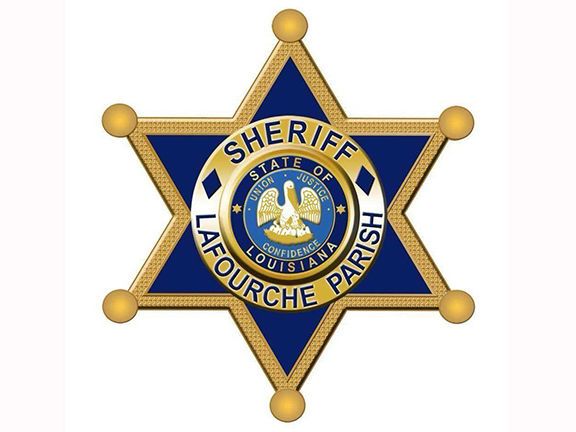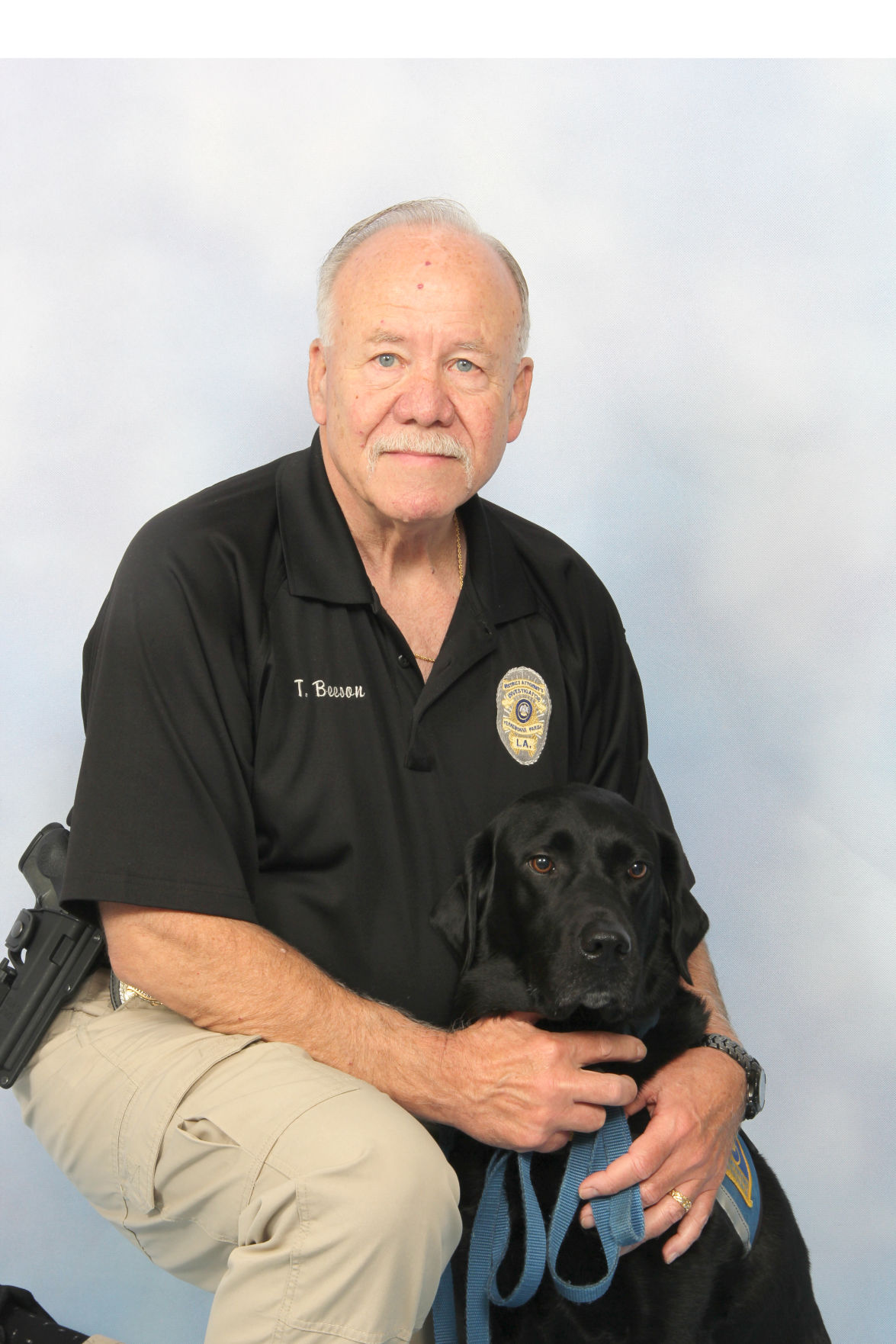
Lafourche Booking Log – Jan. 6, 2018
January 8, 2018
NAACP case gets new judge assigned
January 9, 2018Prayers and good wishes are being requested for a member of District Attorney Joe Waitz Jr.’s team.
Duval, the lab-retriever mix who assists young abuse victims with his calming ways, was brought to West Park Veterinary Monday for observation by his handler and partner, investigator Tommy Beeson.
“I am in hospital, been throwing up all weekend,” a message from Duval on his Facebook page reads. “My bud took me to vet this morning and they are keeping me over night. Running test to find out the problem.”
Beeson said the 7-year-old dog was having stomach issues early in the weekend, but appeared okay Sunday, although he did sleep through the Saints-Panthers game.
Vomiting resumed Monday, prompting Beeson to immediately bring Duval to the clinic.
“Duval has been a very integral part of our children’s advocacy center,” said Waitz. “He has assisted with kids that are interviewed to help them through a traumatic process. He is beneficial to these children and we want Duval to get better. He is part of our prosecutorial team and an important one.”
Four years ago Duval made headlines by appearing — for the first time — in court with a child victim. Hidden so that he could not be seen by the jury, Duval stayed by the feet of a little girl as she gave brace testimony about the family friend accused of sexually abusing her. The girl had specifically requested that her buddy Duval accompany into court. The defendant was eventually convicted and drew a sentence of life in prison.
At the Advocacy Center Duval keeps children being interviewed company, and has an appointment schedule of between two and three children per week.
He has a custom-made Terrebonne District Attorney vest that he wears, and is a common fixture around the courthouse in Houma.
Duval was gifted to Terrebonne Parish by Canine Companions for Independence, a nationwide non-profit that breeds and trains working dogs for a variety of service tasks, from aiding the disabled – even turning light switches on and off, or opening and closing doors – to assisting the hearing and vision impaired.
The special training Duval received was as a “facility animal,” meaning he is prepared to work around and with many different people rather than a single person.
He was born on Oct. 31, 2010, in California, to a golden retriever dam named Zadra, sired by a Lab named Alvin II.
CCI spokeswoman Martha Johnson said that, according to agency policies, the pup and his littermates were to be given names starting with “D.” Because this pup was the facility’s second to be named Duval, he was officially named Duval II.
“These two breeds were chosen for a reason,” Johnson said. “The labs are working dogs, they live to work. The golden retriever is the emotional support. Take these two personalities, these two dogs, and we get the best of those two worlds.”
Once weaned and ready, Duval was sent to live with special puppy-raisers, in Salisbury, N.C. This agency has trained puppy-raisers throughout the country. Among them are teams of inmates at Dixon Correctional Institute in Louisiana and at prisons elsewhere, as well as with families in private homes.
The puppy-raisers teach the dogs basic commands and then move up to the more complex ideas, Johnson said. The trainers monitor skills and attributes, determining how well the pup is wired for its eventual duties.
“The trainers start to get a feel for that,” she said. “We have a lot of good relationships with facilities in town, if they think a dog is going to lean that way, they get a chance to be around a lot of people. We take them on field trips, check out the temperament. We look for special traits and great personalities.”
Only 40 percent of the trainee dogs make the grade.
“Some cannot do the work, they have a change of career, maybe with the FDA or as a drug searching dog, perhaps security at SeaWorld,” Johnson said.
The next step is specialized training with assigned handlers. Duval was introduced to Beeson at the CCI campus in Florida.
At CCI the instructors laugh, Johnson said, calling this period the time when dogs train the handlers.
Beeson, who has more than two decades of law enforcement experience under his belt, welcomed the challenge.
For two weeks Tommy had to work intensively with Duval, learning all of the commands and their applications.
Proper ways of holding the leash are mastered, along with tips for grooming and feeding.
It was during this period that Johnson got to see Duval in action with his new partner.
“Duval loves to help people and has the temperament and the personality,” Johnson said. “They get to have great fun. When Duval goes home with Tommy he takes that vest off and they have some fun.”
A solemn graduation ceremony marked the official pairing of dog and handler, with a ritual handing of the leash from puppy trainer to permanent handler.
Then Duval was off to Terrebonne Parish.
But CCI would be keeping its eye on the dog and still does.
“One thing that is very important to us is that we are with that team for the lifetime of the working dog,” Johnson said. “We are there if Tommy has questions, if there is a behavior problem or a health problem. We do travel to check on them. In the first year there is closer monitoring, and less two years after. We want to see that same behavior two years after. We want to see a dog throughout. Most of these work for eight to 10 years.”













